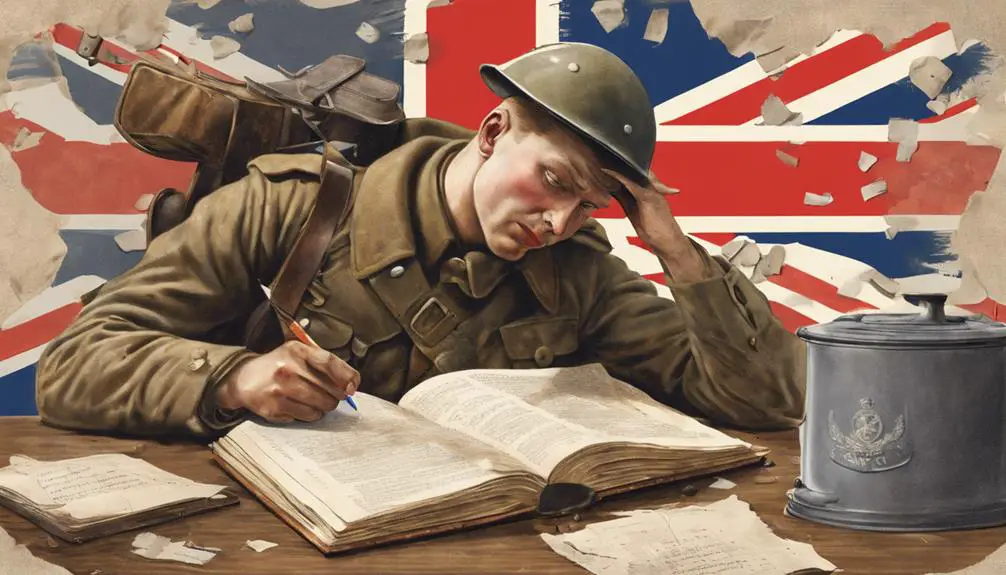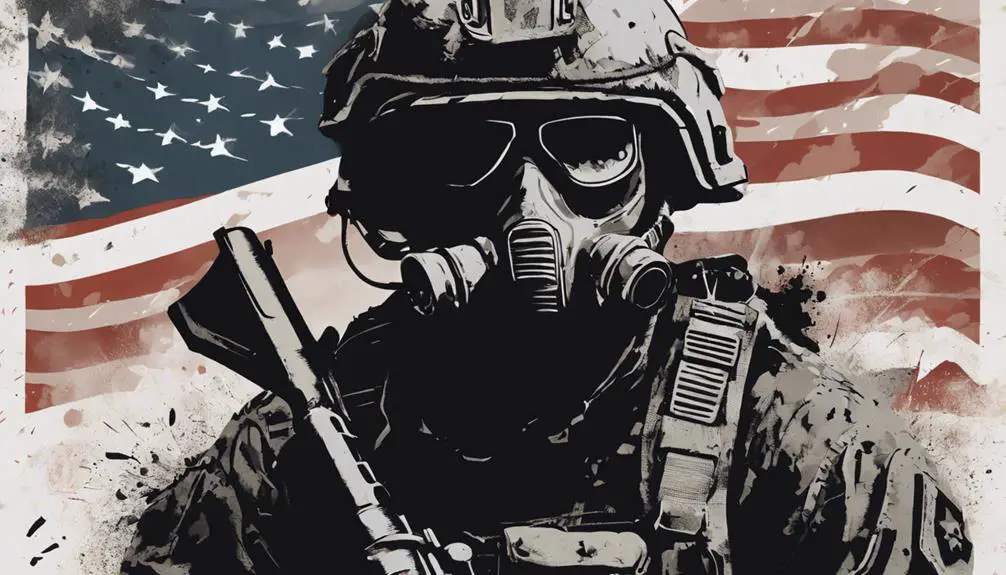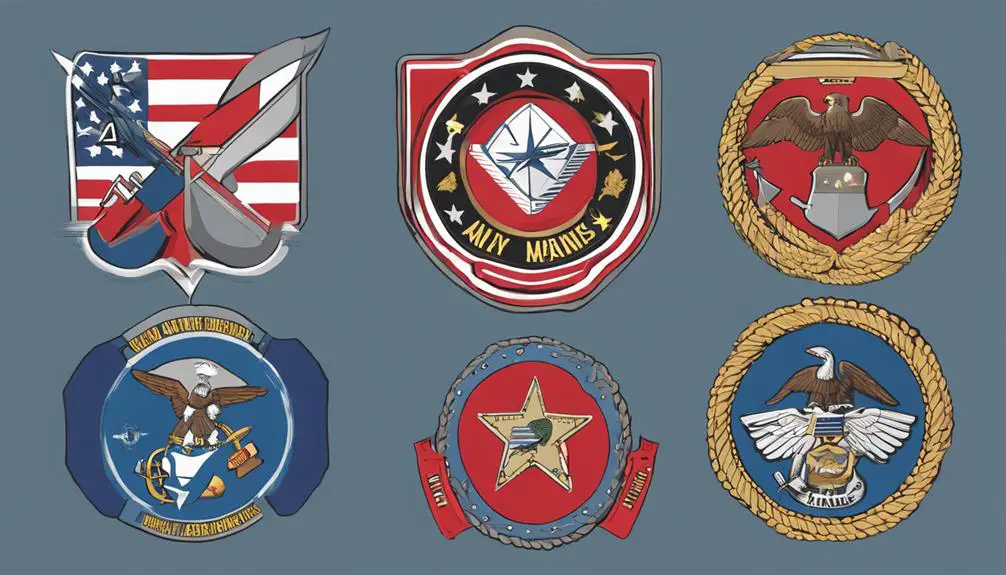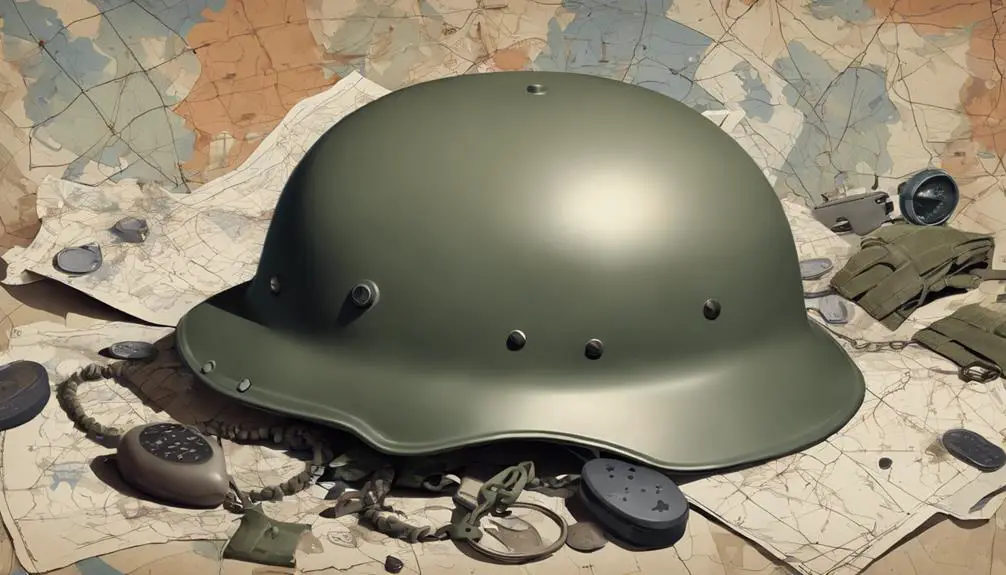You've stumbled upon the term "chow" in a military context, but it's just one piece of the puzzle in a vast landscape of military slang. "Chow" refers to food, but it's not an isolated term – it's part of a complex web of phrases, acronyms, and colloquialisms used by military personnel. From "Roger that" to "Hooah," and from "FOB" to "SITREP," each phrase serves a purpose in communication, camaraderie, and situational awareness. As you explore the world of military slang, you'll find that it's a reflection of cultural contexts, historical roots, and the unique identities of different military branches. And there's more to uncover, waiting just beyond the surface.
Origins of Military Slang

Since the early days of warfare, soldiers have relied on slang to quickly communicate complex ideas, establish camaraderie, and cope with the stresses of military life. You might be surprised to learn that military slang has a rich historical background, with roots dating back to ancient civilizations.
The use of slang in the military can be traced back to the Roman Empire, where soldiers used colloquial language to distinguish themselves from civilians. As empires rose and fell, military slang evolved, influenced by cultural and linguistic exchange.
You'll find that military slang is often a reflection of the cultural context in which it emerges. For instance, during World War I, American soldiers adopted French phrases, while during World War II, African American soldiers brought jazz slang into the military lexicon.
The intersection of cultural influence and historical context has shaped military slang into a unique language that serves as a badge of identity for those who serve. By understanding the origins of military slang, you'll gain a deeper appreciation for the complexities of military culture and the role that language plays in shaping it.
Essential Phrases for Newbies
When you first step into military boots, you'll quickly realize that understanding essential phrases is crucial to traversing the military's unique cultural landscape. As a newbie, grasping these fundamental phrases will help you navigate Boot Camp Basics and get a solid footing in the military's Rookie Rundown.
Here are some essential phrases to get you started:
- Roger that: Affirmative response, meaning 'yes' or 'I understand.'
- Hooah: Expression of enthusiasm, similar to 'yes' or 'hell yeah.'
- Oorah: Marine Corps battle cry, used to express excitement or motivation.
- Gear adrift: Losing control or becoming disorganized, often used to describe a chaotic situation.
Mastering these phrases will help you communicate effectively with your fellow service members and show that you're making an effort to adapt to the military's unique culture. Remember, understanding military slang is key to fitting in and succeeding in your new role.
Combat Zone Lingo Explained

As you deploy to a combat zone, you'll encounter a distinct dialect that's essential for effective communication and situational awareness. This combat zone lingo is a unique blend of slang, acronyms, and colloquialisms that facilitate quick understanding in high-stress situations. It's important to grasp this lingo to guarantee seamless communication with your team and to stay alert in the warzone.
In the heat of battle, every second counts, and miscommunication can be deadly. That's where Battlefield Banter comes in – a language that's concise, direct, and often humorous. It's a way to defuse tension, boost morale, and maintain focus amidst chaos.
Warzone Wisdom is the intuition you develop from experience, instinct, and situational awareness. It's the ability to read the environment, anticipate threats, and make split-second decisions.
Mastering combat zone lingo is crucial for survival and success in the warzone. It's not just about speaking the language; it's about understanding the nuances, the tone, and the context.
As you navigate the complexities of combat, remember that effective communication is key to staying alive and achieving your objectives.
Code Words and Acronyms Decoded
You'll encounter a multitude of code words and acronyms in combat zone lingo, each serving a specific purpose in conveying critical information quickly and accurately. These coded communications are essential in the heat of battle, where every second counts.
In the domain of classified jargon, understanding code words and acronyms is crucial for effective communication. Here are a few examples:
- FOB: Forward Operating Base, a temporary or permanent base of operations
- SITREP: Situation Report, providing an update on the current situation
- CAS: Close Air Support, air support provided to ground troops
- EOD: Explosive Ordnance Disposal, a unit responsible for disposing of explosive devices
These code words and acronyms allow military personnel to convey complex information rapidly and accurately, often in high-pressure situations. By deciphering these coded communications, you'll gain insight into the world of combat zone lingo.
Slang in Different Military Branches

Each military branch has its own unique slang, shaped by its distinct culture, history, and operational environment, which often reflects the specific challenges and experiences of its personnel. As you explore the world of military slang, you'll notice that each branch has its own flavor of jargon.
| Branch | Slang Term | Meaning |
|---|---|---|
| Navy | "Deck" | Refers to the deck of a ship |
| Army | "HOOAH" | Expression of excitement or agreement |
| Air Force | "Bingo Fuel" | Minimum fuel required to return to base |
| Marines | "Oorah" | Battle cry and expression of motivation |
| Coast Guard | "Mayday" | International distress signal |
You'll hear Navy Jargon like "scuttlebutt" for gossip or "swab" for a cleaning task. In the Army, you'll hear Army Lingo like "FOB" for forward operating base or "SITREP" for situation report. Each branch's slang is a window into its unique culture and history. Understanding these terms can give you insight into the daily lives and challenges of military personnel.
Evolution of Military Jargon
Military jargon has undergone significant transformations over time, adapting to changes in technology, operational environments, and societal norms. As you explore the evolution of military jargon, you'll notice that it's been shaped by various factors.
Some key influences on the evolution of military slang include:
- Cultural Influences: Military personnel often adopt slang from their cultural backgrounds, reflecting the diversity of the armed forces.
- Historical Revival: Historical events and figures have contributed to the development of military jargon, with some terms experiencing a resurgence in popularity over time.
- Technological Advancements: The introduction of new technologies has led to the creation of new slang terms, such as 'drone' and 'cyber warfare'.
- Operational Environments: Military slang has been influenced by the environments in which operations take place, like the jungle or desert.
Frequently Asked Questions
Are Military Slang Terms Used Only in Informal Settings?
As you explore the world of military slang, you'll find that these terms aren't solely confined to informal settings. While it's true that they often emerge in casual conversations, there are formal exceptions where military slang is deliberately used to convey cultural nuances or establish a sense of camaraderie.
For instance, a commander might use slang to build rapport with their troops, blurring the lines between formal and informal communication.
Can Civilians Be Prosecuted for Using Military-Only Slang?
You might be surprised to know that 60% of military slang has been adopted into civilian language.
Now, can civilians be prosecuted for using military-only slang? Legally, there are no specific laws prohibiting civilians from using military slang.
However, the issue lies in slang appropriation, where cultural ownership is claimed without understanding the context.
While there are no legal ramifications for using military slang, it's essential to acknowledge the cultural significance and avoid appropriation.
Do Military Slang Terms Vary by Geographic Region?
As you explore the world of military slang, you'll notice that terms vary by geographic region. Regional dialects and cultural influences shape the language used by military personnel.
For instance, soldiers stationed in the Southern United States might use distinct phrases compared to those serving in the Northeast. You'll find that military slang isn't a monolithic entity, but rather a diverse tapestry woven from local cultural threads.
Is Military Slang Used in Formal Military Communications?
As you navigate the domain of military communication, you'll find that formal channels rarely tolerate slang. Clear communication is paramount, and military jargon, though prevalent in casual conversations, is meticulously avoided in official transmissions.
You won't find colloquialisms cluttering operation orders or situation reports. Instead, concise, standardized language guarantees precision and clarity, leaving no room for misinterpretation.
Were Military Slang Terms Used in Ancient Armies?
You explore into the history of military communication and wonder, were ancient armies using cryptic codes too?
It's likely that ancient warriors relied on secretive language to convey sensitive information. Ancient Legionnaire Lingo, for instance, might've been used to confuse enemy interceptors.
Warrior's Cryptic Codes, like Caesar's cipher, were probably employed to safeguard crucial intel.
You realize that the use of coded language has been a timeless tactic in warfare, transcending centuries and cultures.
Conclusion
As you explore the world of military slang, it's clear that it's more than just a quirky language – it's a reflection of the unique culture and experiences of those who serve.
The evolution of military jargon is a tribute to the adaptability and creativity of service members, who continually find ways to communicate effectively in high-stress environments.
By examining the origins, phrases, and code words, it's evident that military slang is an essential part of the military identity.







